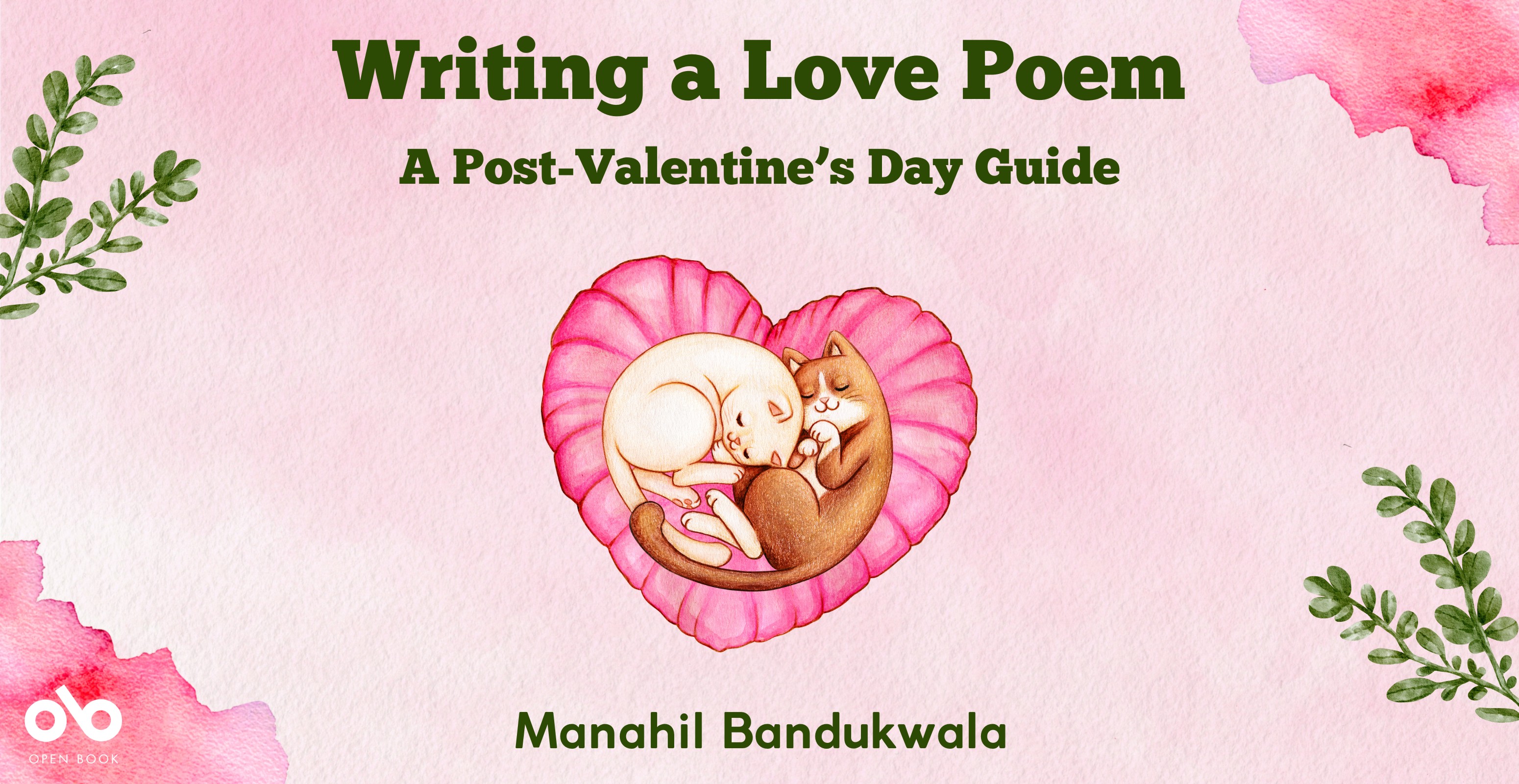Writing a Love Poem
By Manahil Bandukwala
I’m writing this column on Valentine’s Day, which is important to note because the column will be published well after Valentine’s Day. Writing a love poem isn’t limited to a specific day, however, so the contents of this post can be applied at any time of the year.
I think about June Jordan’s words from “Resolution #1,003”: “I will love who loves me / I will love as much as I am loved.” As Jordan’s words describe, love poems are vulnerable—you’re putting the softest and most susceptible parts of you out there for someone to read and encounter.
I’ve had conversations with writer friends about what makes an effective love poem. We’ve all written at least one or two, but I also constantly encounter what I would describe as a fear of writing them. At the same time, it’s also important yet tricky to steer clear of clichés, or to make a cliché feel authentic and honest.
Genre in poetry tends to be less defined than genre in fiction. Distinctions are made up of central themes, style, language, and other subtle cues that often blur into other “genres.” The genre of love poems is vast, and entering and immersing yourself in it might make you realize how close some of your existing poems are to love poems!
With that said, below I share some of the ways I approach writing love poems.
Identify the subject/addressee of the poem
Knowing who the love poem is addressed to is one of the most important things to know as you write your poem. The addressee could be a romantic subject, of course, but there’s also: a friend, a parent, a child, a pet, a place, yourself, and so on.
A reader may not always identify the subject, especially if the addressee is a “you”—and that might be okay, so long as the poem’s emotion comes through. (Of course, if who the addressee is alters the meaning of the poem, you may need to make that clear).
Ground the poem in specifics
This advice is universal for all writing, but when it comes to making a love poem heartfelt, visceral, and effective, grounding the poem in specifics helps steer away from some of the traps of clichés. Ask yourself:
- What images do I associate with the poem’s addressee?
- Is there a specific memory I want to draw on?
- Does the poem have a narrative, and does there need to be a “resolution” at the end?
If you want to create an imagined world, the same advice applies. The more a love poem is grounded in an image a reader can visualize, or a place a reader can enter, the more the poem resonates. Even cliché images like hearts, roses, and candles can feel new and fresh when figured in a different way.
Think about the tone of the poem
Love obviously forms the central emotion of a love poem, but I find there are usually intersections of other emotions. For example, this could be grief, joy, celebration, nostalgia, longing, hope, and more.
Your CanLit News
Subscribe to Open Book’s newsletter to get local book events, literary content, writing tips, and more in your inbox
These other emotions can highlight the sense of love by being present. And of course, there’s the reminder that love doesn’t exist in isolation from other emotions, and neither should a love poem.
Remember what the unspoken words or lines say
You can have a love poem without declaring the word “love” (although it is a fun and interesting challenge to weave the word love into a poem). The tension between what is said and what is left to be implied or unsaid keeps a poem engaging.
I think about this aspect most when it comes to building sex and sensuality in a poem, and how the aspects of the unspoken do a lot of heavy lifting for a reading experience.
Read other love poems
When I started wanting to write love poems, I was reading all the love poems I could find. This reading became a study intensive of sorts, in which I took notes on techniques, forms, approaches, and more. With this information in mind, I could circle around to writing my own love poems.
The views expressed by Open Book columnists are those held by the authors and do not necessarily reflect the views of Open Book.
Manahil Bandukwala is a multidisciplinary artist and writer. She is the author of Women Wide Awake (Mawenzi House, 2023) and Monument (Brick Books, 2022; shortlisted for the Gerald Lampert Memorial Award), and numerous chapbooks. In 2023, she was selected as a Writer's Trust Rising Star. See her work at manahilbandukwala.com.




